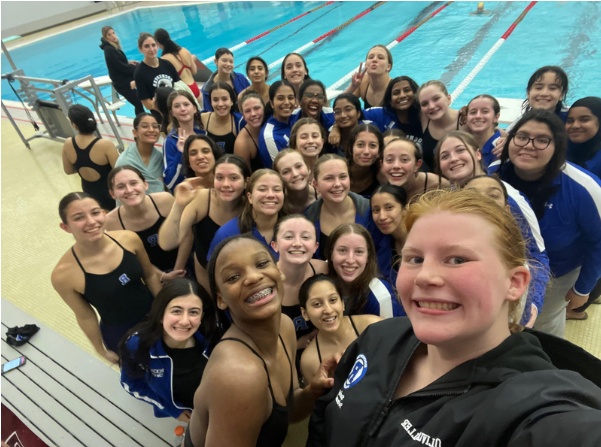Column: Emphasis on academics and money instead of social emotional well-being and following one’s passion is a shame
June 1, 2016
After coming home from a long day, you realize how much there is still left to do; balancing the right amount of clubs, sports and academics is more pressure than you expected. You wonder where this overwhelming load will take you and reassure yourself with the idea that it’s all for college and if you work hard enough you’ll have the possibility of going to a “good” college. And that’s where it usually ends. But where are we really going?
A good college might land you a quick job in the competitive workforce, or allow you to make more money in a higher regarded profession, but what do you get from all this? And what about those who cannot achieve such success? The ideal situation of “get good grades in school, go to college, get a good job and live happily ever after” weighs down on millions of students throughout the nation and keeps us from achieving what we are really capable of.
As society shifts towards valuing money more and more, people place importance on careers in which they can earn higher pay. This preference takes away from the passion and dedication aspect of jobs and creates a less efficient society in general. However, people are not completely to blame for this. Our society does not emphasize certain jobs as much as others, which deters many people from taking on such careers. For example, educators are the people who raise the children of today to be the leaders of tomorrow, yet they often don’t get recognized in this way. Their convoluted pay scale shows that new teachers aren’t very valued. Many people who have a passion for teaching don’t take up the job because of this. The success of people with more money only further reinforces this notion. Being stuck in this cycle of wanting more money keeps us from focusing on what really matters: being content. More important than having a job that you can make a lot of money is having a job that you are passionate about and enjoy. This idea should be enforced at a young age by making school more orientated toward specific career paths rather than just having all students working to come out on top.
Another aspect is that some people who are not as talented get ignored and pushed down by the pressure. Although there are resources for extra help, many students slip through the cracks and struggle to pull off what is seemingly expected out of everyone. For example, a student might have difficulty with a certain aspect of a class that doesn’t pertain to the subject. Take the writing portion of a science class for instance. Writing isn’t the skill that’s being emphasized, but not being good at writing hinders a student from displaying his/her comprehension of the science aspect.
Also, the constant cycle of schoolwork keeps students from being active in other areas such as politics. Today’s youth are less aware of what is happening around them. For example, during the Vietnam War, students were the main group protesting. Most adults continued on with their lives and viewed the war as an evil for the better. Without the voice of the youth, the country would be less aware of what was going on. However, the youth in those days had more time on their hands and could be politically active in this way. Students today are stuck in the never-ending cycle of balancing loads of work with a perpetual goal in mind. Education is important, but won’t be the only factor in determining one’s success. Students that aren’t going into math will not need to know the quadratic equation in five years, but they will have to know how to be a good citizen. Similarly, with such a workload, students are not always able to pursue their talents. For example, someone that’s really good at a sport that’s not offered at school, such as fencing, may not be able to excel at it while attempting to perform well at school and actively participate in extracurriculars.
The pressure placed on students in our school system is a hinderance in preparing us for the real world. School should develop students in more practical ways in things that we will actually face in the future and help us keep the right thing in mind as we strive to reach our goals.







